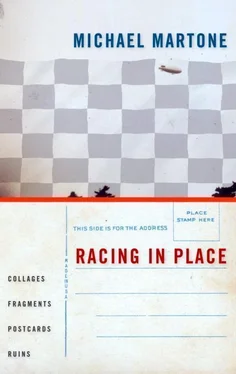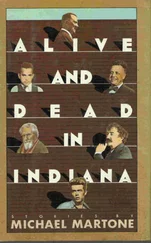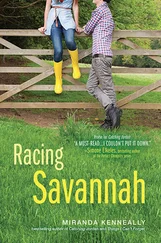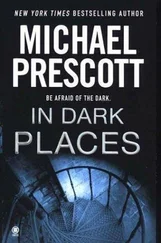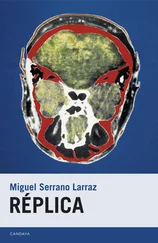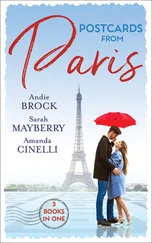Seven of Sixteen: The Blue Light Special
Boxing Day, 1965. On the spur of the moment, Earl Bartell, the manager at the Fort Wayne Kmart, taped a flashing blue lantern he got from sporting goods to some scrap two-by-four lumber, creating the first Blue Light Special. The flashing light marked the spot of some holiday paper he was looking to unload. The sale had been advertised. Announcements had been made. But the customers were having difficulty finding the location of the reduced stock. People had become lost in the store. The blue light was a navigating beacon, strobing orientation. The customers navigated the cramped, crowded aisles toward the discounted breast of-if not the new world-then, at least, the next year's promised presents. The place I write about is the place where the Blue Light Special was created. I, like Gatsby, another midwesterner, believe in the ecstatic future. I believe in the blue light. It is both illuminating and illustrative.
Eight of Sixteen: The Indiana Sky
There is this shorthand for place employed in prose. The adjectival sky. "He walked out under the Indiana [the Iowa, the Illinois, the Idaho] sky." An efficient way to indicate a place in a story, setting, naming it. But, really, would we know an Indiana sky if we saw it? Or, if in a story we read "the Indiana sky," what would we see, what would be conjured up in our imagination? That is to say, place can certainly be named, but, in merely naming it, can it be known?
Ten of Sixteen: Sky Writing
Look up. Wait! Start again. Look up "Art Smith, the Bird Boy of Fort Wayne." It is said that he was the first to successfully complete a complete outside loop, the loop to loop. He died in a crash, an airplane crash, in an Indiana cornfield. Art Smith, it is said, was first to write in the sky, the Indiana sky above the Indiana cornfields, marking the severely clear azure blue with a cloudy cursive script. What did it say? That goes unrecorded. And besides, it is too far away to read, and the letters, the words, are already smearing, streaking. The ascender on what appears to be a B is evaporating, the apex of an A is now merely a dull smudge. The sky arrives above our heads-transparent, generic, unremarkable. It is sky. By definition, over everywhere, everything. It must be branded, a proprietary geography of invisible air.
Nine of Sixteen: The Dumbest City in America
From Fort Wayne my mother calls me in Alabama to tell me that Fort Wayne has been designated by Men's Health magazine as "The Dumbest City in America." It seems to have been done scientifically, with graphs and categories and surveys. The number of Nobel recipients, library books circulating, SAT scores. "What," she asks "are you going to write about this?" It seems one thing I have written is this, to use the occasion of Fort Wayne's designation as "The Dumbest City in America" as an anecdote in a paper to be delivered at the AWP conference that meditates on the elusiveness of place. I don't know. I don't know. By definition my response can't be very, um, smart. I am influenced by the influence of place, a son of dumb. How does the brain think about itself? "Stupid is as stupid does," Forrest Gump's mother says. In Alabama, when it comes to lists, Alabamans say "Thank God for Mississippi." I want, at this juncture, to pun on dumb, to say something about how Alabama gives voice to the notion of place. That that place has placeness. A silence inhabits whole regions of the world, Fort Wayne, Indiana, for instance. That kind of dumb. In the silence in which some places are steeped, someone will articulate the vacuum. Struck dumb by dumb luck.
Eleven of Sixteen: City of Blue Trucks
Fort Wayne is the world headquarters of North American Van Lines, whose distinctive sky blue rigs wander lonely as clouds continually through the city, waiting for a berth. You see them orbiting on the bypass, idling in the far reaches of parking lots, a herd of them huddled together. Air brakes sneeze; running lights run. They've come to hub, to shift and sort and reload loads, to pool then peel away again, pulmonary pods, heaping beasts. Growing up, I liked thinking of the drifting blue trucks, counted them instead of sheep, each of them, I imagined, tared with another living room or parlor, each trailer transporting a suspended domestic setting, dreaming itself. Animated places crept by, a place parade, a parade of place, places looking for places to go and then going. The whole country, in individual dots and dashes, circulating through my city, the furnishings of its atriums entering the chambered city, this contracting, this expanding heart. And then, in another blue beat or two, beat it out of town.
Twelve of Sixteen: The Happiest City in America
In 1948, LOOK magazine designated Fort Wayne as "The Happiest City in America." I ask my mother, who is pictured on the cover with a group of high-school girls huddled laughing at a soda fountain: What is the source of all the happiness? In the water? In the air? Where did it go, she asks her picture, the photos of the photo spread? The photographer had no need to ask anyone to smile.
Fifteen of Sixteen: On the Planet of the Apes
"Where are you from?" Dr. Zaius, the suspicious ape in the movie Planet of the Apes, asks Charlton Heston, the marooned confused astronaut, who warily responds: "Fort Wayne." And the theater goes bananas where we watched (in Fort Wayne), howling, raucous primate applause. I believe we all wanted the film to stop and start over again and return to the place again where a made-up character uttered his made-up hometown that happened to coincide with our real hometown. I have heard people on vacation visit fictional places, send postcards from such places. Greetings from Green Gables, say, Sunnybrook Farm, say, Field of Dreams. Places that have become (through fiction) real. This real place (Fort Wayne) is authenticated by a bit of fiction, a bit of fiction within a fiction.
"Where are you from?" the ape asks.
"Fort Wayne!" Moses answers. The Promised Land.
"Me too!" we all respond, "Me too!"
Thirteen of Sixteen: A Sense of Place
We often speak of a sense of place, that a piece of writing can, at best, approximate a place, suggest the sensation of the surroundings, suggest a sense of sensing. The story simulates, at best, and perhaps needs only to stimulate a vague peripheral nimbus of locale and that is enough to satisfy. A sense of place suggests our alienation from place. It puts us in our place about place. We approach the world on a tack, askance, nuanced, alien and alienated, receding, just out of reach.
Sixteen of Sixteen: A Bottle in a Message
Once I got a coconut from Hawaii. Its hull hulled with stamps. My address and the stamp the only message. From the Smoky Mountains, I sent a little souvenir-a toy black bear crated in a tiny balsa wood box. Often postcards are not about the words alone-not the message in the bottle at all. The bottle itself the message. The medium and the means of transportation, transporting the places temporarily inhabited. Once the postal service would deliver almost anything from anywhere to anywhere if it had enough postage. I always wanted to send a door, unhinged and varnished with stamps, a souvenir of a place I once entered or left. Instead, in hotel rooms now, I strip the door of its framed legal notice encrypted with information that a safe will be provided-that the traveler cannot knowingly defraud the innkeeper-and use it as my souvenir postcard, an accurate indicator of where I'm at, where I've been. This explains everything, I write, an illustration of explanation. I write: Wish you were here.
Fourteen of Sixteen: The City of Conductors
Fort Wayne was division point for all the railroads that once ran through it. The Pennsy, the Wabash, the Big Four, the Nickel Plate, the New York Central, the Monon, and the streets of the downtown were clotted by conductors-passenger train conductors in their dark serge uniforms and freight conductors in stiff bib denim. They moved in time, on schedule with the trains, consulting their railroad pocket watches, carrying their tool bags and flares, ticket punches and key rings. Next door to everyone who was not a conductor, a conductor lived who worked strange hours on long drags to Chicago or Lima or bid highballing varnish to Indianapolis or Cleveland. Next door to us was a conductor, Mr. Kelker, who had lost both hands cleanly cut in an accident. He'd tell us stories. How the city was once a city of conductors, how it felt once to hold time in his hands, and how it felt to live, there, in what was once a destination and how it felt once to feel and how it felt now to feel the phantom feel of fleeting feeling, the subtle texture of absence, the heft of loss, the substantial mass of all that nothing in your hands.
Читать дальше
